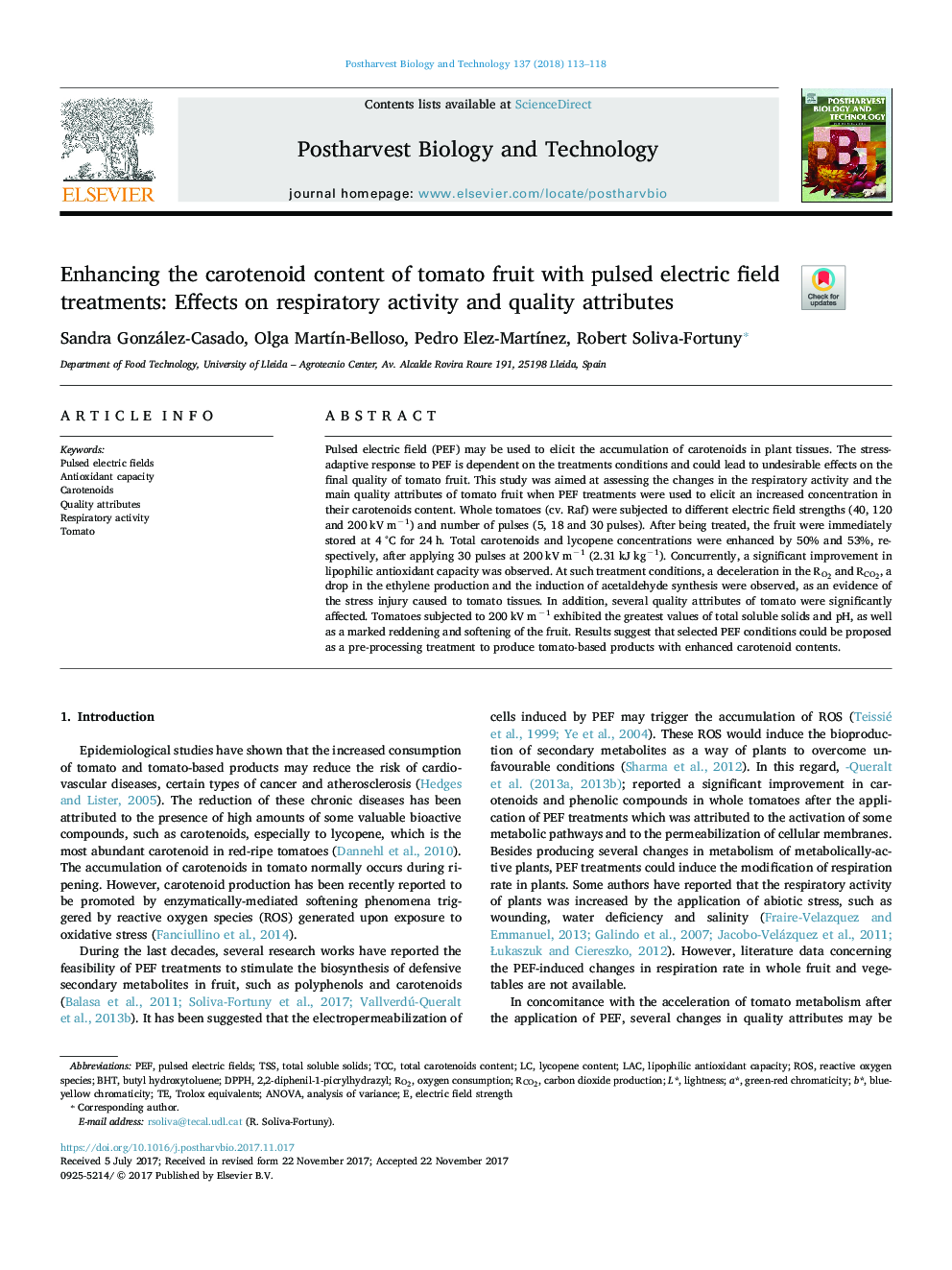| Article ID | Journal | Published Year | Pages | File Type |
|---|---|---|---|---|
| 8882028 | Postharvest Biology and Technology | 2018 | 6 Pages |
Abstract
Pulsed electric field (PEF) may be used to elicit the accumulation of carotenoids in plant tissues. The stress-adaptive response to PEF is dependent on the treatments conditions and could lead to undesirable effects on the final quality of tomato fruit. This study was aimed at assessing the changes in the respiratory activity and the main quality attributes of tomato fruit when PEF treatments were used to elicit an increased concentration in their carotenoids content. Whole tomatoes (cv. Raf) were subjected to different electric field strengths (40, 120 and 200 kV mâ1) and number of pulses (5, 18 and 30 pulses). After being treated, the fruit were immediately stored at 4 °C for 24 h. Total carotenoids and lycopene concentrations were enhanced by 50% and 53%, respectively, after applying 30 pulses at 200 kV mâ1 (2.31 kJ kgâ1). Concurrently, a significant improvement in lipophilic antioxidant capacity was observed. At such treatment conditions, a deceleration in the RO2 and RCO2, a drop in the ethylene production and the induction of acetaldehyde synthesis were observed, as an evidence of the stress injury caused to tomato tissues. In addition, several quality attributes of tomato were significantly affected. Tomatoes subjected to 200 kV mâ1 exhibited the greatest values of total soluble solids and pH, as well as a marked reddening and softening of the fruit. Results suggest that selected PEF conditions could be proposed as a pre-processing treatment to produce tomato-based products with enhanced carotenoid contents.
Keywords
RO2RCo2Lycopene contentTSSLACDPPHBHTTCCPEFROSanalysis of varianceANOVATrolox EquivalentsCarbon dioxide productionLightnessAntioxidant capacityRespiratory activityElectric field strengthOxygen consumptionPulsed electric fieldsQuality attributesCarotenoidstotal soluble solidsTomatoReactive oxygen species
Related Topics
Life Sciences
Agricultural and Biological Sciences
Agronomy and Crop Science
Authors
Sandra González-Casado, Olga MartÃn-Belloso, Pedro Elez-MartÃnez, Robert Soliva-Fortuny,
